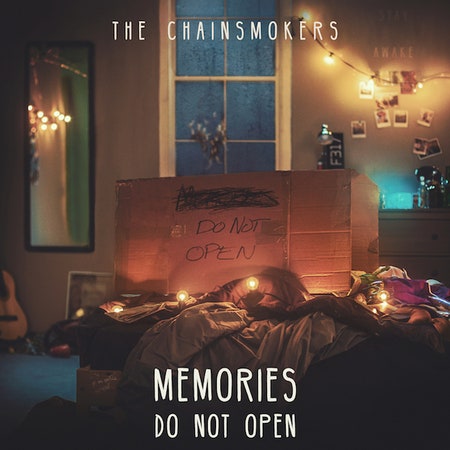Commercial EDM thrives on triumph, each one greater than the last, and the Chainsmokers have a bootstrap story as big as any in the game. When Drew Taggart and Alex Pall released “#SELFIE” in December 2013, they were relative nobodies trying to make a dent on the EDM scene. A month later, Steve Aoki’s Dim Mak label picked up the single—a novelty song about social media that suggested women are somehow more vain and annoying than men—and things started happening for the duo. But, like the viral spread of Baauer’s “Harlem Shake,” the success of “#SELFIE” and its attendant backlash threatened to eclipse their fledgling career.
“We made a novelty record that was, in my opinion, one of the most clever records ever made... Obviously not everyone got the joke,” Taggart told Idolator in late 2015, gravely underestimating everyone's ability to get jokes. “But we’re working our way out of that and proving that we’re pretty well-rounded musicians.” So they abandoned their EDM to emphasize slower tempos, slinky melodies, and songs about bruised feelings. Whether they helped initiate the move away from super-sized dance music or merely sniffed the shifting winds, it was a canny move. In the past year, they have become one of the biggest names in pop music. On YouTube, a pair of videos for their single “Closer”—a moody, surprisingly convincing song about sex, regret, and the passage of time—has been viewed 1.6 billion times. Their 10 most popular songs on YouTube and Spotify alone account for a combined seven billion plays.
This stylistic and emotional maturation is a big part of the narrative the Chainsmokers tell about themselves as party bros made good. The first lines we hear on the album are an apology: “You know I’m sorry,” sings a wounded, suspicious Taggart, sounding more like an emo singer than a superstar DJ, and it sets the brooding tone for an album preoccupied with breakups and betrayals. Musically, Memories… Do Not Open is of a piece with all of their output post-“Roses,” the single that marked their big shift. There are no big-room bangers, no concussive drops, no coked-up-mosquito-with-a-vuvuzela synth riffs. Diplo and Skrillex’s big hit for Justin Bieber, “Where Are Ü Now,” serves as the template for their pneumatic pads and processed vocals. With few exceptions—like “Break Up Every Night,” a peppy pop-rock number that could be a more caffeinated MAGIC!, or “Last Day Alive,” which features the country duo Florida Georgia Line in the musical equivalent of a poster of fighter jets—the duo and their 32 credited co-writers keep the tempos slow and the moods muted. It is an anodyne pop record for a post-EDM world, one where trap and trop-house mix with pale imitations of the Migos flow and Coldplay’s cornball sentimentality. None of it sounds anything like “#SELFIE,” but its worldview is barely any bigger than that song's narrow perspective; toggling between cheap thrills and bitter recriminations with all the emotional stakes of a drunken beach fight caught on Snapchat.
